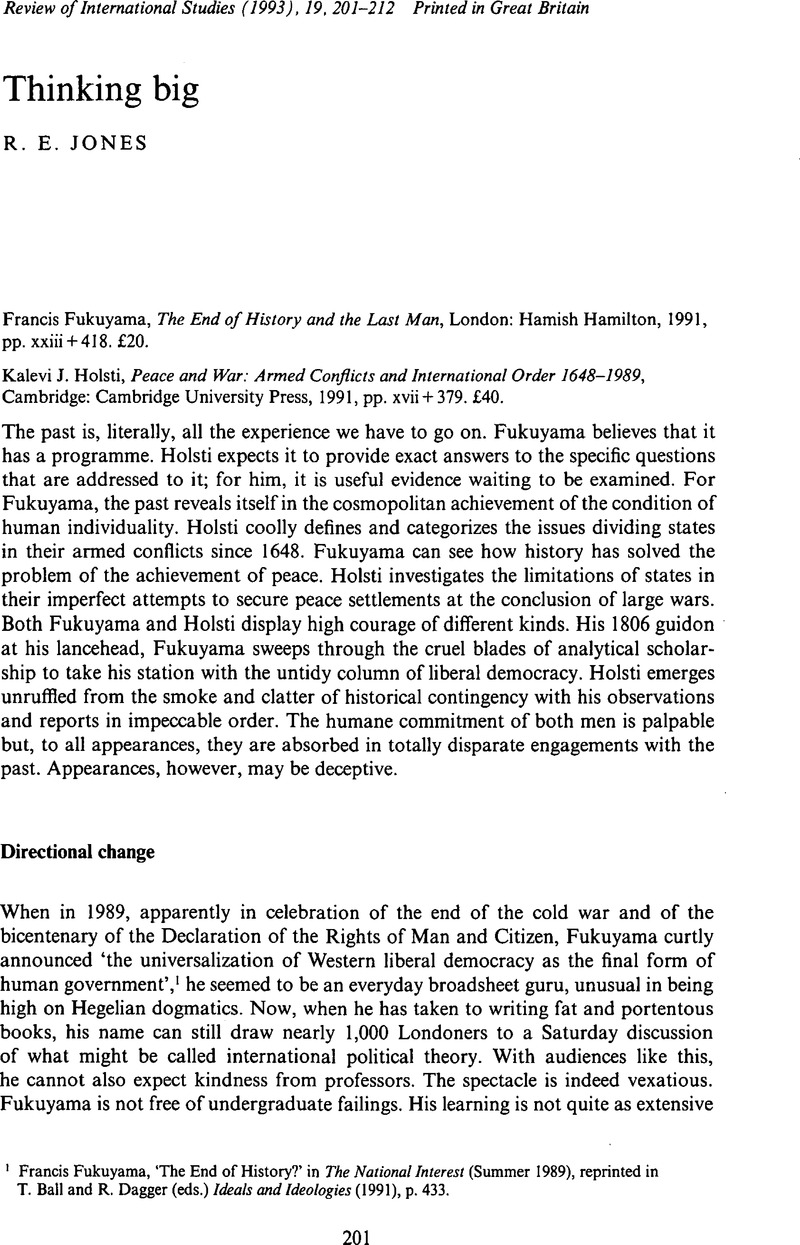Article contents
Thinking big
Review products
Published online by Cambridge University Press: 06 October 2010
Abstract

- Type
- Review article
- Information
- Copyright
- Copyright © British International Studies Association 1993
References
1 Fukuyama, Francis, ‘The End of History?’ in The National Interest (Summer 1989)Google Scholar, reprinted in T. Ball and R. Dagger (eds.) Ideals and Ideologies (1991), p. 433.
2 See John Dunn, ‘In the Glare of Recognition’, The Times Literary Supplement, 24 April 1992, p. 6.
3 Alan Ryan, ‘Professor Hegel goes to Washington’, New York Review of Books, 26 March 1992, p. 12.
4 Dunn, ‘Glare of Recognition’, p. 6.
5 Fukuyama, The End of History and the Last Man, p. 72. All further references to text are to this edition.
6 Alexandre Kojeve, Introduction to the Reading of Hegel, assembled by Raymond Queneau, ed. Allan Bloom (1969), p. 160.
7 Kojeve, Introduction, pp. 159–60.
8 M. F. Burnyeat, ‘Happily Ever After’, London Review of Books, 23 July 1992, p. 14.
9 F. Nietzsche, introduction to the 1886 edition of The Birth of Tragedy, trans. W. Kaufmann (1967), p. 26.
10 K. J. Holsti, The Dividing Discipline (1985), p. 144. See also p. 8.
11 Holsti, K. J., Peace and War: Armed Conflicts and International Order 1648–1989 (London, 1991), p. 13CrossRefGoogle Scholar. All further references in text are t o this edition.
12 Holsti, The Dividing Discipline, p. 149.
13 Holsti, Peace and War, p. 347.
- 1
- Cited by


